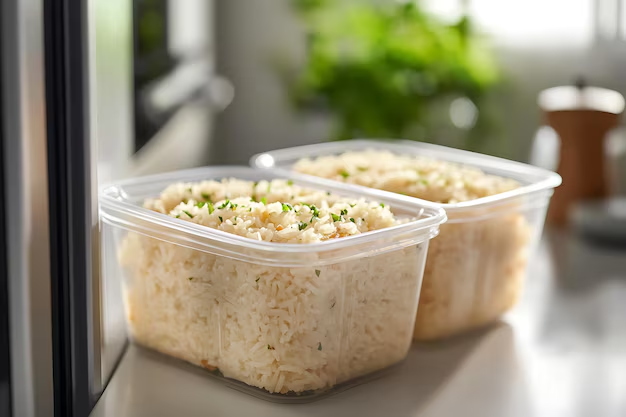How Long Can Your Homemade Chicken Broth Last in the Refrigerator? 🥣
Homemade chicken broth is a cornerstone of cooking, prized for its rich flavor and versatility in countless dishes. Whether you’re crafting soups, stews, or even sipping it straight, the freshness of your broth can greatly impact the final result. But one question often arises in home kitchens: "How long can homemade chicken broth actually last in the refrigerator?" Let’s dive into this topic and explore some crucial aspects about storing this savory culinary staple.
Understanding Chicken Broth: A Quick Overview
What is Chicken Broth?
Chicken broth is a savory liquid made by simmering chicken meat, bones, vegetables, and seasonings in water. This careful blend releases flavors and nutrients into the liquid, creating a base for numerous recipes. Depending on its usage—be it soups, sauces, or even gravies—chicken broth can significantly enhance a dish's complexity and taste.
Why is Freshness Important?
Maintaining the freshness of your chicken broth ensures that it remains not only flavorful but safe to consume. Fresh broth maintains its nutrient density and additive-free appeal compared to store-bought varieties, which may contain preservatives.
🗓️ How Long Does Chicken Broth Last in the Fridge?
Typical Shelf Life in Refrigerator
When stored properly in the refrigerator, homemade chicken broth typically lasts between 3 to 4 days. This time frame is commonly accepted among culinary experts, emphasizing the importance of using the broth relatively quickly to enjoy its full flavor and nutritional benefits.
Factors Influencing Shelf Life
Several factors can influence how long your broth remains at its best:
- Temperature: Ensure your refrigerator is at a consistent temperature below 40°F (4°C).
- Container: Store in airtight, clean containers to prevent contamination and dehydration.
- Ingredients: The freshness of initial ingredients, particularly chicken, impacts overall longevity.
- Preparation Method: Simmering broth at a safe temperature and cooling it quickly further preserves quality.
🤔 How to Determine if Your Chicken Broth is Still Good
Sensory Tests
- Smell: A sour or unpleasant odor indicates spoilage.
- Appearance: Cloudiness or unusual color changes can signal issues.
- Taste: If uncertain, a small taste test (followed by discarding if spoilage is suspected) is better than risking an entire batch of food.
Common Signs of Spoilage
- Off-putting smell
- Visible mold or film on the surface
- Unusual thickness or separation
Practical Tip
Always err on the side of caution. If your broth shows any signs of spoilage, it's best to discard it.
📦 Proper Storage Techniques
Refrigeration Best Practices
- Cool Quickly: After making broth, bring it to room temperature within two hours by placing it in shallow containers.
- Label and Date: Mark containers with the date of creation for easy tracking.
- Store in the Back: Keep broth on an interior refrigerator shelf, not the door, to maintain a consistent temperature.
Freezing for Extended Preservation
Freezing can extend the life of chicken broth to around 4 to 6 months. Here are some tips for freezing:
- Portion Control: Freeze in small batches or ice cube trays for convenient, single-use portions.
- Leave Room for Expansion: Liquids expand when frozen; ensure containers are not filled to the brim.
- Tight Seal: Use freezer-grade containers or bags to protect against freezer burn.
🌿 Enhancing Broth Flavor and Extending Shelf Life
Incorporate Fresh Ingredients
Using ingredients like fresh herbs or vegetables can not only boost flavor but also extend the broth's freshness when added right before consumption.
Consider Acidic Additions
Adding a touch of acidity, like lemon juice or vinegar, can add brightness to the broth's flavor and help in extending its sensory freshness.
Pressure Canning
Pressure canning is a viable method for storing homemade chicken broth without refrigeration, providing several years of shelf life. However, proper techniques must be followed to ensure safety.
Minimal or No Salt
Prepare a low-salt version for longer storage potential and versatility, as you can adjust seasoning per individual recipe needs.
📝 Summary Table: Homemade Chicken Broth Storage Tips
| Action | Detail | Emoji Reminder |
|---|---|---|
| Refrigerate Promptly | Store within 2 hours of cooking | ⏱️ |
| Use Airtight Containers | Keep out air and bacteria | 🔒 |
| Label and Date | Mark containers to track freshness | 🏷️ |
| Check Consistency | Look for signs of spoilage before use | 🔍 |
| Freeze for Longevity | Ideal for longer storage (up to 6 months) | ❄️ |
| Warm Thoroughly | Heat to a rolling boil before consuming leftovers | ♨️ |
Mastering Homemade Broth
Creating and storing homemade chicken broth is both an art and a science. With mindfulness towards freshness and proper storage, home cooks can ensure that each drop of broth adds depth and richness to their meals. Paying attention to sensory indicators and employing safe storage techniques are keys to enjoying this culinary staple safely and deliciously. Embrace these practices, and your homemade broth will not only taste great but also support better cooking outcomes.

